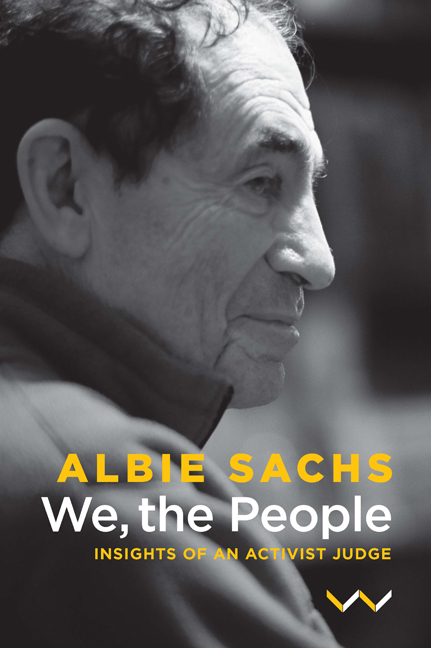Book contents
- Frontmatter
- Acknowledgements
- Miscellaneous Frontmatter
- Contents
- Figures
- Introduction
- 1 In the Beginning
- 2 Hope and Caution in Exile
- 3 We Have to Mistrust Ourselves
- 4 Inventing A Constitution
- 5 With Clean Hands and Without Secrets
- 6 Reconciling the Past and the Future
- 7 Living Constitutional Law and Ubuntu
- 8 More than Crumbs from the Table: Enforcing Social and Economic Rights
- 9 Struggle Continues
- 10 Are the Beautiful People Born?
- Cases Cited
- Sources
- Index
5 - With Clean Hands and Without Secrets
Published online by Cambridge University Press: 21 April 2018
- Frontmatter
- Acknowledgements
- Miscellaneous Frontmatter
- Contents
- Figures
- Introduction
- 1 In the Beginning
- 2 Hope and Caution in Exile
- 3 We Have to Mistrust Ourselves
- 4 Inventing A Constitution
- 5 With Clean Hands and Without Secrets
- 6 Reconciling the Past and the Future
- 7 Living Constitutional Law and Ubuntu
- 8 More than Crumbs from the Table: Enforcing Social and Economic Rights
- 9 Struggle Continues
- 10 Are the Beautiful People Born?
- Cases Cited
- Sources
- Index
Summary
Today, we are still building our nation. Some of us are still learning that a nation is characterised by the diversity of its people. People who speak different languages and are from different cultures, still share certain basic understandings. If we allow bitter division and opposition to continue, even in terms of memories of the past, our future will be based on separation and mistrust.
To me, the biggest gain of our Truth and Reconciliation Commission created by law in the first year of our new democracy was the extent to which it exposed apartheid's so-called ‘separate development’ as having been something beyond institutionalised racism. The bitterly cruel methods used to sustain it, the lies told, and the misinformation and the deceit involved – all that has come out. It has changed the moral balance in our country and made other kinds of transformations possible. To me, that is the most significant gain. The Truth Commission itself did not create, restore, or established a balance of fairness and trust. Instead, it facilitated these processes. Unless the ideals of the Truth Commission are confirmed in reality by the South African people, so that whites are not living in relative affluence while blacks overwhelmingly are living in poverty, then the full story of the Truth Commission will never be complete. Still, the Commission was part and parcel of a much wider public process that, at the very least, created a moral climate in which it was easier to give social and economic transformation a chance to take place. The Truth Commission was not just an agency that recorded our history, but a landmark chapter in our history.
What are the international implications of South Africa's Truth Commission? Not every country can secure justice by these means. For example, I completely supported the prosecution of General Augusto Pinochet in Chile. There were differences of principle. First, General Pinochet gave himself and his regime amnesty. In South Africa, the main representatives of the oppressed people themselves negotiated and agreed to it. Secondly, General Pinochet never acknowledged the criminality of what had happened – the murders and assassinations. It is that total refusal to bend the knee which created such a profound sense of rancour, a sense of arrogant perpetuation of the denial of the cruelty.
- Type
- Chapter
- Information
- We, the PeopleInsights of an Activist Judge, pp. 53 - 84Publisher: Wits University PressPrint publication year: 2016

